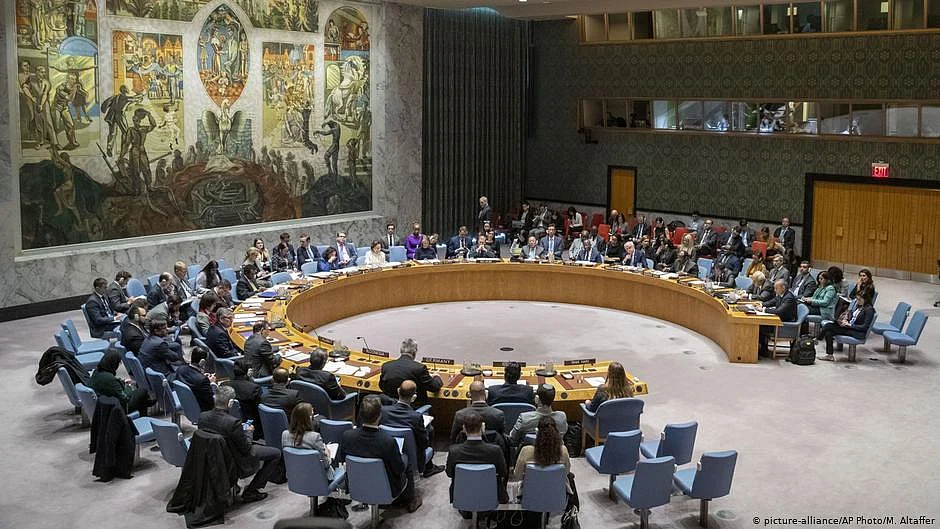Biden reiterates US support to inducting India into UNSC, but P5 group seems in no hurry to walk the talk
Currently, the UN Security Council does not represent the developing world and global needs, with the importance of policy resting with the Permanent Five (P5) – US, UK, Russia, China, and France

India has been in quest of a place at the UN high table for long. The issue has arisen again during last week's bilateral meeting in Washington between US President Joe Biden and Prime Minister Narendra Modi.
India has been lobbying for the Security Council's expansion and staked a claim for a place in it. For some years now, whenever our leaders went abroad, or any heads of state visited India, one issue was getting support for India's candidature to an expanded Security Council.
At least four American Presidents – George Bush, Barack Obama, Donald Trump, and now Joe Biden – have openly declared their support to India's candidacy to the powerful UN Security Council. In November 2010, on his first state visit to India, Barack Obama, addressing the Parliament, said he looked forward to the day India would become a permanent member of a reformed UNSC. Trump, too, openly supported India's claim.
Now, the new President, Joe Biden, has joined the list. He has reiterated his support for India's entry into the Nuclear Suppliers Group and permanent membership in a reformed United Nations Security Council (UNSC). But so far there has been no sign of UN reforms.
India was elected as a non-permanent member of the powerful Security Council for two years in June 2020. It has served eight two-year terms earlier.
As a UN founder member, India can make a strong case. India has the world's second-largest population and is the world's largest democracy. The country has been consistent in its contribution to the UN peacekeeping missions and has sent close to 200,000 troops, including an all-women force in 2007. Should India become a permanent member, it would have the ability to shape a range of global institutions and regimes.
Last September, frustrated at the snail pace of the reform movement, PM Modi, while addressing the UNGA, asked, "Till when do we have to wait?"
Currently, the Council does not represent the developing world and global needs, with the importance of policy resting with the Permanent Five (P5) – US, UK, Russia, China, and France. Any one of them could sabotage any proposal with their veto power. Four out of the five permanent members back India's claim to UNSC. They have bilaterally expressed support for its candidature. But none of the P5 is in any hurry to relinquish their veto-wielding seat on the Council. India, Brazil, South Africa, Germany, and Japan are solid contenders for permanent membership of the Council, forming a ‘G4’ pressure group.
Going by the current trend, the world body is not in a hurry for reform. Though the US and other countries talk of reform, for the UN it is not a priority. Every UN Secretary General has pleaded for reforms. Former SG Kofi Annan (2015) aptly said that if the UNSC does not appoint new permanent members, its primacy may be challenged by some of the new emerging countries.
He noted that the Council has thus become an organization which can pass strong resolutions against weak countries and weak resolutions against rich nations. This indicated the helplessness of the UN in dealing with P5 on the subject.
This brings us to whether the UN has performed its role in the past 75 years. Critics point out that several authoritarian rulers have used conventional weapons against innocent citizens despite UN watch. Moreover, the UN resolutions are non-binding. The world body was supposed to prevent conflicts and war, yet over 80 clashes took place since its inception. US Presidents, from Bush to Trump, have all criticized the UN for its functioning. UN is also facing a resource crunch because members, including the US, do not pay their contribution in time.
Despite all complaints and criticism, the UN is currently the only international organization where leaders from different countries come together to work out some of the world's problems. It takes time to build a world body like the UN. Instead of destroying it, it should be reformed. That is why India is lobbying for its rightful place in the UN sooner than later. Who will reform the UN is indeed a question mark, which needs to be answered by the P5.
(IPA Service)
Views are personal
Follow us on: Facebook, Twitter, Google News, Instagram
Join our official telegram channel (@nationalherald) and stay updated with the latest headlines